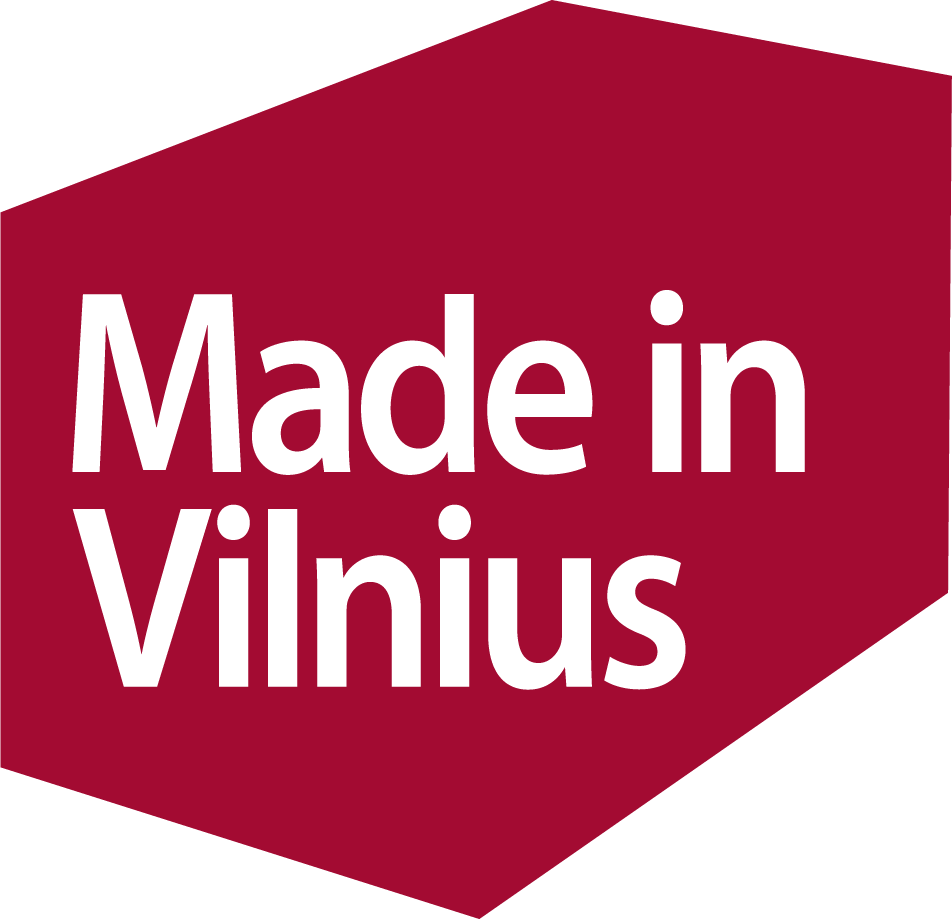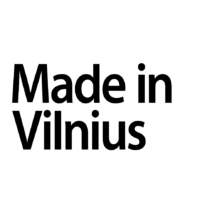Tomorrow, December 10, a remote Nobel Prize laureate presentation ceremony will take place in Stockholm. Scientists Emmanuelle Charpentier and Jennifer Doudna were awarded the Nobel Prize in Chemistry this year for the development of the CRISPR-Cas9 gene editing method ("gene scissors" technology). Vilnius University (VU) Life Sciences Center professor biochemist Virginijus Šikšnys together with his team are pioneers in this field who significantly contributed to this discovery and its development. In order to perpetuate the professor's achievements, an international scholarship named after the professor will be established in Vilnius shortly before the Nobel Prize awarding day. It will reach 10 thousand. EUR annually, the city of Vilnius undertook to finance the scholarship for at least five years. In order to give even more meaning to the scientist's work, a sculpture dedicated to gene scissors technology will be erected in Vilnius next year.
Scholarship - for the most talented in life sciences
"We are proud that global talents are born and continue their work in our city. The achievements of Professor Virginijus Šikšnis are not only a significant contribution to the promotion of Vilnius as a world leader in the field of life sciences, but also to the health of all mankind. By establishing an international scholarship named after V. Šikšnis, we aim to strengthen the opportunities for young people to learn from a world-renowned scientist, and for the Life Sciences Center of Vilnius University to attract and retain the most talented students", says the Mayor of Vilnius Remigius Šimašius.
The scholarship will be administered by the Life Sciences Center of Vilnius University. The most talented life sciences students from all over the world studying and conducting scientific research in Vilnius will be able to apply for it. The scholarship will amount to 10 thousand. euros per year. The city of Vilnius undertakes to allocate them for five years in a row, with the possibility of extending this term.
According to R. Šimašius, the scholarship will contribute both to the retention of the country's most talented students and will provide opportunities to help Vilnius discover foreign talents.
"Vilnius is already shining on the map of world leaders in life sciences. V. Šikšnys, who works here, contributed to the discovery and development of the world-changing CRISPR-Cas9 technology, Vilnius University students won the main prize of the prestigious "IGEM" competition for genetic engineering machines for the second time this year, and well-known international biotech companies such as "Thermo Fisher Scientific", "Teva" and others. So Vilnius really has something to be proud of in this area," he says R. Šimašius.
The news about the initiative was received with joy
Prof. himself Speaking about the initiative, V. Šikšnys smiles and is happy that the scholarship will be a great incentive for young scientists to actively continue scientific research: "I, of course, did not expect at all that a scholarship named after me could appear in the city. But, I think it is better to look at it as an important initiative of the city, which supports talents and encourages young scientists to actively continue their work not elsewhere, but specifically in Vilnius."
Vilnius University Life Sciences Center, where prof. V. Šikšnys, director prof. Gintaras Valinčius is happy with the emergence of the scholarship - according to him, such initiatives directly contribute to the birth of world-class talents.
"The success of any scientific institution, city and country in the world of science depends on people. Therefore, with the scholarship, recognizing the abilities of young scientists, we will encourage them to continue to work actively in Vilnius and make Lithuania famous with their achievements. It is very important that in this journey of young talents, the city appreciates the benefits of scientific achievements and is proud of them as an integral part of the city's history, culture and life. That inspires young people to continue their work in this city", says G. Valinčius.
For the discovery of the so-called "molecular gene scissors" and Prof. V. Šikšnys has been awarded prestigious prizes - the Warren Alpert Prize of Harvard University, and together with the laureates of this year's Nobel Prize in Chemistry - the famous Kavli Prize.
In addition, in 2017 the professor was awarded the "Novozymes" prize of the Danish foundation "Novo Nordisk", which he also shared with E. Charpentier.
In Vilnius - a sculpture for gene scissors technology
At the beginning of next year, the initiative of the scholarship named after the professor will be complemented by another symbolic step - in Vilnius, near the VU Life Sciences Center, it is planned to unveil a sculpture dedicated to immortalizing gene scissors technology. Artist Egle Žvirblyta was entrusted to create it.
"Both of my parents are well-known biotechnologists in Lithuania, and my father even worked together with Prof. V. Šikšniu. I also seriously considered the possibility of entering the exact sciences, but in the end I took the path of art. So now I am very happy that the circle has turned and I have the opportunity to return to the world of science and create a sculpture that is very important for the city, in which both my roots in Vilnius and the history of my parents are intertwined", says E. Žvirblytė.
According to Inga Romanovskienė, director of the Vilnius City Development Agency, this city's gift to the field of life sciences will visually reveal what world-class discoveries are being made in Vilnius.
"Ideas created in Vilnius change the world - we should be proud of that. A playful sculpture dedicated to gene scissor technology near the VU Life Sciences Center will allow anyone passing by to associate this place with the breakthrough that is being born here. It will be a kind of reminder to young people to achieve big goals, because everything is possible in Vilnius", says I. Romanovskienė.
One of the most important scientists of this discovery in the world
This year, the Nobel Prize in Chemistry went to scientists Emmanuelle Charpentier from the Max Planck Institute in Berlin and Jennifer Doudna from the University of California for the discovery and development of the CRISPR-Cas9 technology. Despite this, the international community of scientists Prof. V. Sišknis is considered one of the most important creators and developers of this technology in the world.
"Gene scissors" is a targeted method of changing the DNA sequence that encodes the molecular processes that determine the activity of living organisms, which involves the complex of CRISPR-Cas9 protein and RNA molecules.
It is hoped that in the future, this technology will allow curing not only hereditary blood or eye diseases, but also muscular dystrophy and hereditary heart defects. This genome-editing technique may lead to a cure for AIDS caused by the human immunodeficiency virus (HIV) and is important for the development of innovative cancer treatments. In addition, the technology is already beginning to be applied in agriculture, creating new varieties of plants that would be resistant to drought or other adverse climatic conditions.

